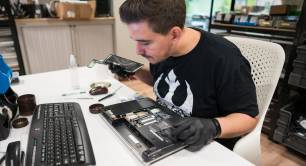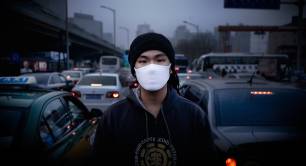Cross-party inquiry investigates government support to social enterprises during Covid
A cross-party group of UK parliamentarians has begun investigating the impact of Covid-19 on social enterprises and how well they were supported by the government.
Opening the first evidence session yesterday in an inquiry by the All-Party Parliamentary Group for social enterprise, civil society minister Baroness Diana Barran said it was “really important” to understand how the government could have responded better to the pandemic. “Who were the people we missed, and importantly where did it work well?”
She highlighted support including the furlough scheme, business loans, a £750m fund for charities and the £150m released from dormant accounts.
“I’m sure that many on the call will wish that we had done more, but it was a substantial support,” she said.
The inquiry is being chaired by Charles Courtenay, the Earl of Devon, who is a barrister and crossbench member (in other words, non-party political) of the House of Lords. Yesterday’s session, held online, was introduced by Baroness Glenys Thornton and attended by around 20 people including Labour MP Rachael Maskell, the shadow minister for charities.
I’m sure many on the call will wish that we had done more, but it was a substantial support - Baroness Barran
Asked what she hoped to get from the inquiry, Barran suggested a scope beyond the Covid-19 response, saying she wanted to know what worked well in procurement and how to help social enterprises grow.
She also said there were four current opportunities for social enterprises: their “incredibly positive” and solutions-oriented culture; new procurement opportunities through the Social Value Act; the fact that their priorities aligned with those of the government; and the to-be-expanded dormant assets scheme. On the latter, she acknowledged “concerns” – it is not yet clear how the money will be spent – but said: “I can't imagine a world where social enterprises aren’t significant beneficiaries of that.”
Sleepless nights for social entrepreneurs
Four social enterprise representatives – Lindsey Hall, CEO of Real Ideas Organisation; Anwar Ali, managing director of Upturn Enterprise; Michelle York, commercial director at Nuneaton Signs; and Nina Parnell, head of volunteering at Westbank Community Health and Care – gave evidence at the meeting. Among the points they raised were:
- Regional differences: While some parts of the country have been cushioned from the worst of Covid-19 infection rates, others have been hit hard. Businesses in Oldham (Greater Manchester) – which has faced long periods of local lockdowns – were really struggling, said Ali, and some social businesses “barely survived”. Those in south-west England were less affected – and also benefited from “brilliant” local authority support, said Hall.
- Lack of specific support for social enterprises: Social enterprises were often “lumped in” with every other kind of business, Ali said: there was “lots of rhetoric” on supporting social enterprise, but that wasn’t visible on the ground level. Almost all of the funders Upturn applied to said they were being inundated with applications; eventually the enterprise got funding from UnLtd, although less than requested. Nuneaton Signs didn’t get any funding (although it used the furlough scheme), leaving it working “hand to mouth”, said York.
- Unsuitable funding: Social entrepreneurs were concerned about short-term contracts or funds, and about contracts that supposedly seek innovative ideas but are set up in a way that “precludes innovation”. And one grant came with conditions that required the money to be spent by 31 March 2021, leaving the grantee “spending for the sake of spending”, instead of putting it to better use.
- Eating into reserves: Several of the social entrepreneurs mentioned digging into one-third or even more of their organisations’ reserves. In Upturn’s case, that meant less money to invest in pilot projects that other funders avoid backing. Westbank Community Health and Care also faced uncertainty about the stability of its own traded income from hospitality services it provided.
- Worries about growing demand: For Westbank Community Health and Care the challenge was even more significant now than during lockdown, with loneliness and isolation on the rise and people “extremely nervous” about leaving home, said Parnell. The people Upturn works with “are really struggling,” said Ali. “It breaks my heart.”
- Relying on customer support: Nuneaton Signs survived thanks to the commitment from its customers, said York: customers could have bought signs from other providers but chose to continue using the social enterprise because they believed in the mission. But much more public awareness of social business was needed, she said.
- Strength of the social enterprise movement: Organisations pulled together during the crisis. The “step-up of collaboration” had been critical, said Hall, allowing organisations to support each other in “a whole mix of ways”.
Four further evidence sessions – inviting sector representatives, academics and both the minister and shadow minister for civil society – are scheduled for the coming months, with a report to be published at the end of 2021.
Input to the inquiry can be submitted to Social Enterprise UK, which is the APPG’s secretariat.
Header photo by Kevin Grieve on Unsplash
Thanks for reading Pioneers Post. As an entrepreneur or investor yourself, you'll know that producing quality work doesn't come free. We rely on our subscribers to sustain our journalism – so if you think it's worth having an independent, specialist media platform that covers social enterprise stories, please consider subscribing. You'll also be buying social: Pioneers Post is a social enterprise itself, reinvesting all our profits into helping you do good business, better.




